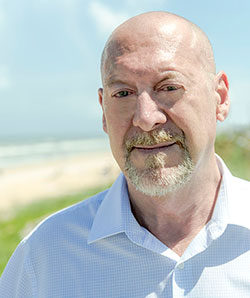
Myths & Facts About Reverse Mortgages
1. The bank will own my home
This is a very common misperception about reverse mortgages. Banks and other lenders are not in the business of owning homes, nor do they want to be — their goal is to extend loans and earn interest on them. With a HECM loan, the homeowner keeps their name on the title and the lender adds a lien. This is exactly the way a home equity loan works - the lien is a guarantee that the lender will get paid back at some point.
2. If I live too long, the bank will take my home
HECMs were created by the Federal Housing Administration specifically to give people a guarantee that they can live in their home for the rest of their lives. As long as you are payng your property taxes and homeowner's insurance, and maintain the home to FHA guidelines, you cannot be evicted or foreclosed on, even if you live to 100. The reverse mortgage isn't due until all homeowners have passed away or moved out of the home for one year.
3. If my loan goes upside-down I can lose everything
A big advantage of the FHA-backed HECM loan is that it is a “non-recourse” loan. So even if your home declines in value and is no longer worth enough to repay the loan, the lender takes the loss and cannot attempt to collect any additional money beyond the foreclosure of your home. So your retirement funds, second home, vehicles, are all safe. This protection also extends to your heirs.
4. My heirs will not inherit my home
Reverse mortgages do not change inheritance - they just put a lien on the title for the amount of the loan plus any accrued interest and mortgage insurance premium. This is exactly like a traditional loan. So the amount owed is simply deducted from the price when the home is sold, and any remainder goes directly the heirs. And, as above, if the balance of the loan is bigger than the value of the home, the lender has to take the loss.
5. Reverse mortgages have high expenses
The expenses associated with your HECM are the same as a traditional loan, and also similar to most mortgages the majority of closing costs and fees can be financed into the loan amount.
6. I will have to pay taxes on my new income
The proceeds from your reverse mortgage, whether collected in a lump sum or through monthly payments, are not considered income and are not taxable. We do recommend that you consult a tax advisor for more information on HECM income.

Carl N. Jensen
Residential Mortgage
Loan Originator
NMLS #1181707